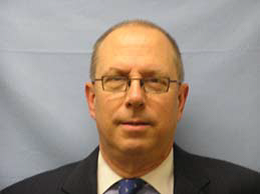Bernard McDonnell, DO, is a retired physicians and current surveyor for the Healthcare Facilities Accreditation Program. HFAP is aligned with CMS to ensure all hospitals and healthcare facilities are compliant with Medicare standards, regulations and conditions of participation.
 Quality processes are crucial to a successful accreditation survey, as Dr. McDonnell and other surveyors review 100 percent of expected HFAP standards when observing a health system.
Quality processes are crucial to a successful accreditation survey, as Dr. McDonnell and other surveyors review 100 percent of expected HFAP standards when observing a health system.
The depth of the material can be challenging for hospitals as they prepare to be surveyed. Here Dr. McDonnell details recent changes with the HFAP survey criteria, as well as common pitfalls and tips for a successful accreditation process.
Recent HFAP Survey Changes
HFAP has a renewed focus on three new patient safety initiatives from CMS — discharge planning, utilization review and infection control. While these criteria are not new, they are now more of a focus for CMS and accrediting bodies; hospitals will need to show more successful processes than before.
"In general, HFAP is great at risk reduction strategies," he says. "This initiative really helps identify strengths, weakness and opportunities for improvement."
The renewed focus is in part due to continual problems in infections, patient discharge and utilization. Infection control shortfalls in particular, including hospital-acquired infections, continue to plague healthcare facilities. They are a real problem for hospitals' reputations, Dr. McDonnell says.
"People are still neglecting to use alcohol prep before and after entering patients' rooms," he says. "Things have to be done. Hand hygiene processes are all over the map. Are people empowered to say, 'Doctor, you didn't wash your hands'? Infection control is a huge risk reduction strategy, not just for accreditation but for patient safety."
For discharge planning, hospital personnel need to ensure patients are discharged in a timely manner and know where the patients will go next. Without proper planning, unnecessary beds will be filled, which translates to increased costs and less space for patients who need to be admitted. It's not just length of stay either; other factors to consider include biologicals and appropriate use of limited resources.
"It's our goal to make people aware of what is going on," Dr. McDonnell says. "HFAP looks at these three initiatives, not to be used as punishment, but to work with them to help their hospital be the best it can be. A different set of eyes can see something they didn't think of."
Most Challenging Areas
Helping a healthcare operation achieve the highest standards of quality is the top priority for HFAP surveyors. Dr. McDonnell outlined the areas he sees hospitals struggle with the most.
1. Environment. Environmental issues from aging facilities are often to blame for accreditation problems. Simple obstacles, such as tears in the floor or chipped tiles in the walls, can be problematic for hospitals' infection control processes. Such environmental flaws can keep surfaces from getting thoroughly disinfected. Some older hospitals are in the process of renovating, and the running wires or dropped ceilings and firewalls from construction can be violations.
2. Education. He frequently sees nursing staff members lacking in education as to processes in place for epidemiological, obstetric or psych crises. While such situations may not occur often, they will be problematic if they take place while nurses on duty have not been trained in the proper procedures. Surveyors will be looking to see if hospitals are continuing to educate their nurses on such evolving situations.
3. Endoscopy. Improper endoscopy sterilization brings myriad infection problems for healthcare facilities, Dr. McDonnell says. When surveying a facility, he will go and speak with the specialists to determine how they are cleaning the tools and what is being done to ensure the process is completed correctly each time. It's a risk reduction strategy to make sure a tool will not infect the next patient, he says.
Tips to a Successful Survey
The majority of health systems do a good job of following HFAP guidelines and having quality procedures in place, he says, though most have some areas for improvement. The surveyors are there to be educative and constructive when a facility does have a problem with any requirement.
"We are not punitive," Dr. McDonnell says. "We don't dig to find problems. However, if there are problems, we will not gloss over them. Tough love is involved. If there are problems, we identify them and work with systems to become compliant."
Hospitals must have the correct policies in place and execute them according to HFAP standards to receive accreditation. Here are two simple ways to achieve the best results from a survey.
1. Read the book. "It's an open book test," he says. While a very simple suggestion, it is one many people do not follow. The most compliant facilities will take the book requirements seriously and make their own evidence books with tabbed material to back up all requirements.
2. Provide easy access to information. Another way to make the process easier on all parties is to ensure easy access to policies or information the surveyor may need to look at. Open charts — and a few closed ones — will need to be readily accessible, whether electronically or on paper.
More Articles on Patient Safety:
Mercy Health Launches Organization to Support Nurse Care Coordinators
6 Common Mistakes in Plan, Do, Study, Act Cycles in Healthcare
4 Stages of a System Approach to Drive Value in Healthcare

